
The War of Words
In this Adventures in Odyssey drama, a carelessly uttered word from Eugene creates havoc as it becomes the fashionable insult, resulting in a lesson about the power of words.
Home » Episodes » Focus on the Family Broadcast » The Four Most Important Choices You Can Make as a Parent
Preview:
Crystal Paine: But it’s because you can’t fail if you’re faithful, because failure is not dependent upon your child’s choices or behavior, it’s about you walking with them.
End of Preview
John Fuller: That’s Crystal Paine, and she joins us today on Focus on the Family to share her journey of allowing God’s love to transform her parenting. Your host is Focus president and author, Jim Daly. And I’m John Fuller.
Jim Daly: Hey, John, we’ve talked to many parenting experts who say to let go and allow your kids to make mistakes, but it’s a lot easier said than done, right? Uh, in reality, many parents spend their days frustrated, I’m speaking outta my own experience, (laughs) by their kids’ behavior, uh, because, uh, I think we tend to own too much of it.
John: Mm-hmm.
Jim: You know, it reflects upon us and, uh, that never is good when they’re not keeping the room clean and they’re not doing the things they need to do. If you can relate to this, uh, it’s worth considering what’s at the root of your fear when it comes to your parenting style. And I’m, I’m speaking, like I said, to myself. Jean and I, we have battled this ’cause we wanted certain perfection out of our boys. And really, Jean led the way she was so good at turning the corner and going, you know what? We gotta love our kids-
John: Mm-hmm.
Jim: …first and foremost. And I guess that is why I’m excited today to talk to our guests. She’s written a great book, Love-Centered Parenting. And uh, it, I always am looking for this kind of content for you to hear, because I think this is at the core of many of the problems we face in Christian families.
John: Mm-hmm. I, I would agree, Jim. And, uh, we’re so glad crystal Paine is with us. She’s known as The Money Saving Mom. That’s the name of her very popular website. Uh, Crystal and her husband, Jesse, have four children. And, uh, she’s written, as you said, this book, Love-Centered Parenting: The No-Fail Guide to Launching Your Kids. And of course, we do have copies of that here at the ministry. Just call 800, the letter A, and the word FAMILY. Or stop by focusonthefamily.com/broadcast.
Jim: Crystal, welcome back to Focus on the Family.
Crystal: I’m so excited to be back here.
Jim: I love this topic. I hope you heard that in the opening. I mean, uh, I’ve been waiting to talk to somebody, especially a mom, about this because i-it just seems to be at the core of so many issues in Christian families, particularly, ’cause we have this drive toward living life as perfectly as we can, and then we lay it on our kids to, to do that as well. And they’ve got growing pains to go through, right?
Crystal: Mm-hmm. Yes.
Jim: (laughs) And it’s hard. Uh, describe your family. Let’s start there. Uh, before turning, uh, toward a love-based parenting style, what did your family look like?
Crystal: I feel like it all started with me, that I had so much stress. I constantly felt like I wasn’t doing enough. I was constantly going to bed psychoanalyzing and second-guessing myself, “Oh, I should have done that. Why did I do that? Why did I respond like that?” And I felt this weight on me, of that it was never enough and that everyone else was doing it so much better than me. And I was just constantly failing my kids. And was also that weight of my reputation. I cared so much what other people thought of me as a parent.
Jim: Yeah.
Crystal: And it just was constant exhaustion and stress.
Jim: There was a moment where this kind of became, uh, the moment of awareness.
Crystal: Mm-hmm.
Jim: I think you were dropping one of your children off at school-
Crystal: Mm-hmm.
Jim: … and something went down that got your attention. What happened?
Crystal: Yes. So, it was about four years ago and our kids were going to this little Christian school and my husband was dropping the three of them off. And the principal met him and said, I need to meet with you and your wife and one of your, a specific child after school. And he came home, and he told me this and he’s like, “This is not good.” Like we just both felt like, we don’t know what this is about.
Jim: Right.
Crystal: But something really bad is about to go down.
Jim: Honest.
Crystal: And we were just kind of trying to think through everything that had happened the last week. And we couldn’t come up with what could this be?
Jim: And what happened? (laughs) I think she’ll go to the meeting.
Crystal: So, we go in to the principal’s office and the principal tells us that our child had done something that had broken the school’s code of conduct and was very serious, and that swift action needed to be taken. And we were just really blindsided by the whole thing. Because it had just happened the day before, we thought everything was fine. Like we had never… The day before, it was just a normal day. And our child had really hidden this from us. And then wasn’t even willing to, in the principal’s office, admit that they had done that. And it took a long time for our child to actually say, no, I did, I did that. And so, then we spent the next few weeks really meeting with families and unpacking and figure out, you know, what is going on? How did we miss this?
Jim: Right.
Crystal: And finding out that there was so much more than just this one incident. And that’s really hard as a parent, to feel like you’ve completely missed something that your child was really struggling with and had been struggling with for months. In fact, we found out that a lot of the other parents had been talking, a lot of them had gone to the principal, um, and that they had even labeled our child a bully and we were clueless.
Jim: Yeah. You know, and a-a I get that because you see one side of your child at home and you don’t totally dial in, and you’re just moving along blindly.
Crystal: Mm-hmm.
Jim: So, I, I think a lot of parents could relate to that situation. And, you know, when you get that phone call from a friend saying, hey, you know, my son told me that your son, or what have you, and then you gotta deal with that, right.
Crystal: Mm-hmm.
Jim: So, you ended up, you did get into some, uh, therapy for this child. Uh, the therapist had some interesting, uh, challenges for you.
Crystal: Yes.
Jim: But for you not necessarily for your child, what was that about?
Crystal: Yes. So, it really spiraled out. Our child, this kind of was the straw that broke the camel’s back because then everything kind of came to the surface and they became extremely vitriolic. And then their, their anxiety was through the roof, and then it was depression, and then it turned into suicidal. Um, things that they were saying, we ended up in the ER. And it was a really scary time as a parent. And we were finally able to get our child into therapy. And I remember just sitting across from therapist at that initial meeting, our child wasn’t there, and just saying, “If there is anything you can come up with that I can change or do, would you please let me know because I’m just at a loss.” And a few weeks later, after therapy with our child, this therapist called me back in after she dismissed our child and she said, “I think you’re trying so hard to fix your child. What would it look like to just walk with them instead?”
Jim: Huh? That had to be a bit of a shock. Right?
Crystal: Well, I’s- I started paying attention ’cause at first I was like, “Fix them?” Like I, I feel like I’m trying to walk with them. But then I paid attention to my responses. And when something was going wrong, when a child was acting out, when they were arguing, or fighting, or they’d done something, I would instantly just swoop in and try to fix it. Like I needed to get into sermon mode, we needed to take care of this, we needed to address this. And so much of my time was spent correcting my kids.
Jim: Mm-hmm.
Crystal: And very little time was spent actually connecting with them.
Jim: Yeah. Yeah. I had a similar experience. I remember taking, each of my sons, I took him on something that Focus does here, Adventures and Fatherhood. And so, you’re out in the wilderness, you’re in a small group of about five or six dads with either their daughter or son. And we’re sitting around the campfire one night. And the, the guide is asking Troy, my youngest, some questions. And I found myself jumping in. I mean, I was, if he didn’t answer them quickly enough, you know, I was saying, “Well, Troy enjoys this, that, and that.” And finally, he turned to me and just said, “Why don’t you let Troy answer the questions?”
Crystal: Mm-hmm.
Jim: And it was like a brick wall that hit me, you know? And it got my attention. And uh, you know, that’s one of the things that I was trying to over parent in. I was trying to bolster his responses, right.
Crystal: Mm-hmm.
Jim: Give him a little juice, help them with what to think about (laughs) and say. So, I totally get that.
John: Mm-hmm.
Jim: And, uh… But that had to be such a serious time for you and your husband and your child.
Crystal: Yes, it was. And I think for me, it really, I hit rock bottom as a parent and just it, I realized what I’m doing is not working and something needs to change. And so, when the therapist said that to me, I started just really looking inward and digging into what is the root of this? Why do I feel like I need to be fixing my child? Why am I trying to be my child’s savior and Holy Spirit? Why do I think it all depends on me? This a really heavy weight to carry. And as I dug into that and started, you know, just really paying attention, I realized it went back to a dysfunctional view of God.
Jim: Hmm.
Crystal: That I didn’t realize how much I was loved by God. And I was parenting so much in order to earn approval from others and earn approval from God. Like, I thought, if I could just be a good parent, then other people would think well of me. I cared so much about my reputation. And it out reputation, not relationship-
Jim: Mm-hmm.
Crystal: …with my kids. And I just had to then dig more into that. And I realized that there were so many lies that I was believing about myself, that I’m a failure, I’m a mistake, I’m not enough. And just on and on and on it went and I was living in those lies and letting those lies be the labels that I wore and that I led with-
Jim: Yeah.
Crystal: … and parented from.
Jim: Yeah. Crystal, it’s so refreshing to hear such vulnerable, uh, expression of what we go through as parents. And I, I guess one of the questions I’d have for the mom listening, I’m trying to think of where she’s at right now. And she hasn’t been able to make the leap yet.
Crystal: Mm-hmm.
Jim: You know, she recognizes the load, she feels that burden like what it was for you to lay your head on the pillow and just go after yourself for not being the perfect mom.
Crystal: Mm-hmm.
Jim: How would you encourage somebody who’s still there at point A to get to point B. I mean, there’s no formula to do that.
Crystal: Mm-hmm.
Jim: It’s a recognition of I’m doing this outta my own strength, all the things that you’re saying. Ha- if that mom was sitting right where I’m at, what would you say to her to stop and look at this differently? Ha- how do you disengage in that behavior that you had have and reengage with the Lord and do it better?
Crystal: First off, I would say, just over the next 24 hours, pay attention to the narrative. The words that you say about yourself and the words that you allow in your head, are you constantly going to places that aren’t true? Like, what does God act actually say about you in his word? You are redeemed. You are chosen. You are loved. You are forgiven. You are beautiful. When he looks at you as a child of God, he sees Jesus. You’re covered in the blood. And so, if you’re constantly going around saying I’m a failure, I’m a mistake. Everything that I do is just a disappointment to everyone in my life, and you’re just beating yourself up as a mom, you’re living in lies.
Jim: Hmm. You know, Crystal, like, it dawns on me, the great story of the prodigal son, right? And you think of that father.
Crystal: Mm-hmm.
Jim: And the older son was really wanting to heap guilt on the younger son, right?
Crystal: Mm-hmm.
Jim: And the dad would have none of it. He said, “No, we’re throwing a party. Your brother is back.” And the father did something that wasn’t characteristic of that time. He ran to the prodigal son who was coming onto the property. And, and it’s, it’s such a good illustration of the attitude of God’s heart for us.
Crystal: Mm-hmm.
Jim: That he runs for us. That he’s always willing to throw us the party, right?
John: Mm-hmm.
Jim: And, uh, it’s hard to believe that, though, when you have so much guilt built up.
John: That is one of my favorite passages of scripture. And it, it really is God’s father heart for us. And, uh, we’re so glad you’re joining us for the conversation with Crystal Paine today. Um, this is Focus on the Family with Jim Daly. And Crystal’s book, Love-Centered Parenting: The No-Fail Guide to Launching Your Kid really captures what we’re talking about, her story, in greater detail. Uh, get a copy today. Uh, call us. Our number is 800-A-FAMILY. Or stop by focusonthefamily.com/broadcast.
Jim: Crystal, I really want to get into some practical help for those moms who are going, “Okay, this is me. I’m living this now. What do I do?”
Crystal: Mm-hmm.
Jim: And, uh, in your book, you mentioned four important choices in parenting. The first one being lean in and love. I think you’re alluding to that a couple of times here that you gotta listen. Describe more fully what lean in and love looks like.
Crystal: Yes. And it’s interesting ’cause the subtitle of the book is The No-Fail Guide to Launching Your Kid. And people are like, “Well, how can you, you know, really say the, the no-fail guide?” But it’s because you can’t fail if you’re faithful. Because failure is not dependent upon your child’s choices or behavior. It’s about you walking with them.
Jim: Yeah.
Crystal: And so, leaning in and loving them. It’s this posture of letting God’s love flow through you. And I truly believe that, as parents, we have this desire to love our kids, but until we have that wellspring of love of understanding how much we’re loved by God, we can’t wholeheartedly love our kids. And so, we’ve gotta get this right inside for us before we really pour out God’s love to our kids.
Jim: Yeah. Leaning in love is a great concept. Let me play the provocateur here. There’s gonna be some parents that are gonna say, “Yeah, that’s all good. Love is good, but discipline’s important, too-
Crystal: Mm-hmm.
Jim: …they need to know the boundaries.” And how do you relate to that parent that maybe leaning a (laughs) little strongly in that direction? Boundaries are good.
Crystal: Mm-hmm.
Jim: You need to teach your kid’s discipline. That’s all true. But how do you do that leaning in and loving them?
Crystal: Well, first off, I would say, what is that desire for boundaries? Where is that coming from? What is the root of that? And is it, is it about your own need to control? Is there fear? (laughs)
Jim: That’s a great first question. Wow.
Crystal: Is there fear or pride or selfishness? A lot of times at the root of us feeling like we wanna discipline our kids, it’s that need to control. It’s our own fear of what the future’s gonna look like. It’s our own pride of what other people think about our parenting. Or it’s our own selfishness because we just want our life to be easier. And so, if we set these boundaries, it’s gonna make our life easier. So really getting to the root of, is it out of love for our kids or is it out of our own dysfunctional junk that we need to deal with? (laughs)
Jim: (laughs) And those are good questions. Look, on that lean in and love, you had an experience, uh, where I think you asked your kids a very, you know, brave question as a parent. What did you ask them? How did they respond?
Crystal: Yes. So, we try to just have this open door policy with our kids, especially as we’ve had this shift. And so, letting them, you know, come to us and tell us things where we are being hypocritical. Which is really hard as a parent.
Jim: (laughs), that’s a brave parenting tactic.
Crystal: But one time we were on a trip, it was a few years ago, and we just ask because, you know, road trips are great for having family conversations. Everybody has to be a part of the conversation ’cause they’re in the car.
Jim: Right.
Crystal: And so, we just ask them, what do I do as a parent that makes you feel loved? And what do I do as a parent that makes you feel unloved? And it was fascinating, the responses, but so much of it dealt with it. We didn’t listen well. You know that we would just kind of jump into preaching a sermon or just telling them what they should do, telling them what they should know, or that we just weren’t taking enough time with them. It’s quality and quantity time. And just really looking into their eyes and letting them know I care about you. I value what you have to say. And I… it’s not just about my own agenda for you.
Jim: The, there was a time your child was being disrespectful. I don’t know which one, you do. (laughs) And they knew the, uh, consequences for their actions. What, what happened and how did you manage that one?
Crystal: Well, there’s been many times that (laughs) our children have been disrespectful.
John: Just once ago.
Crystal: Just put that out there. (laughs)
Jim: This one sticks out. (laughs)
Crystal: I didn’t write a parenting book because I have it all figured out, trust me.
John: Mm-hmm.
Crystal: Um, but one of the times, it was just there had been this thing that I, I told our child, you know, if you do this, there’s gonna be this consequence, and the child had done it. And um, so I’d gone back to them, and I’d said, you know, okay, there’s this consequence. And then there was just this thing in my heart over the next day that I felt like God wanted me to go back and actually take away that consequence and say, I’m gonna let you do this thing that they had wanted to do that I had taken away. And when I went to them and said that my child just looked at me and they said, “What? that’s grace.” And it was just that recognition of, you know, I’m not saying I, I feel like choices have consequences, but every once in a while, if the Holy Spirit is just prompting you sometimes for our child to see us extend grace to them. And that open up the door for just a conversation about how much grace God has poured on us that we don’t deserve. And so, you using those opportunities as just the opening of a door to a conversation to point our kids to the Lord. I think that that’s ultimately what we wanna do, is just pointing them to Jesus-
Jim: Yeah.
Crystal: … In our everydayness of life.
Jim: You know, I think we… It’s really profound what you’re saying, because I think we miss that, um, important teaching and to teach our children about God’s grace.
Crystal: Mm-hmm.
Jim: We lean into the rules and, you know, tell ’em what God expects of us and those things-
Crystal: Mm-hmm.
Jim: … but we don’t make it… I, I’m being general here, but I don’t think we do enough to teach about God’s grace.
Crystal: Mm-hmm.
Jim: And that’s a great example of how your kids caught that.
Crystal: Mm-hmm.
Jim: Certainly, your one child. Okay. So, we, uh, lean in and love. That’s one of the four choices we as parents make. The next is, uh, to listen well. I love this one, ’cause I’m terrible at it.
Crystal: (laughs)
Jim: I’m usually talking over (laughs) my kids. So how do we stop and truly listen well?
Crystal: So, we come with this attitude of, I care about you and I want to lean in and just express love to you. And then stop and ask them questions. So often when something has happened, I will jump to conclusions or project my own beliefs on what has happened. Whether you get an email from school, or a call from school, or a friend tells you something your child did, or another child tells you something your child did, and I’ll just go into, “Oh my goodness, I can’t believe they did that. And we just need to get this taken care of.” But to lean in in love and to listen well means that take a breath and ask them questions first. And so, one of the things that I’ll often do with my kids is say, “Can you tell me what happened in this situation? Or I got this email today from school. Can you explain what happened?” Giving them the opportunity to explain it to me first versus me just jumping into, “I cannot believe that you did that.” And so often, that will open up the door to a conversation that we never would’ve had if I had just jumped on them and gone to, “Okay, well, here’s the consequence.” Jim: And I, I challenge parents to recognize this. Literally, this morning Jean was telling me Troy and I are gonna do a little weekend road trip. And she said, “Now, when you ask Troy a question, if he’s sitting silently, don’t fill it in for him.” I mean, so I’m totally guilty of that.
John: (laughs)
Jim: I, you know, I’m trying to do better. Uh, the third one is, uh, the choice to lead with humility.
Crystal: Mm-hmm.
Jim: This can be really hard for parents, too, but I totally agree with this, Crystal. This is so important.
Crystal: I think our kids need to see that we’re not perfect.
Jim: Yes.
Crystal: And I think it’s important that they recognize how much we need Jesus. And that without him, we’re not able to do life. And so, leading with humility involves sometimes going back to our kids and asking for forgiveness, which is really hard to do. But I just wanna say, let’s make this a practice that is normal in our home. Because we are going to fail. We are going to mess up. We are going to make mistakes. And so, for us to go back to our kids, when we’ve responded out of anger, or when we haven’t handled a situation, well we haven’t listened, we’ve shut them down, to go back and say, “You know, yesterday when that happened, I just didn’t respond to you well. Would you please forgive me? I’m really working this in my life.” And I think it also really just opens up the door for our kids to then come to us and share when they’re struggling. And for our kids to see how we need Jesus, it’s gonna point them to look to Jesus when they’re going through hard times, too.
Jim: And that’s the best parenting you can do, really.
Crystal: Mm-hmm.
Jim: The fourth one is letting go of your child. What? What?
Crystal: (laughs)
Jim: Crystal, are you crazy? Um, obviously, it’s age appropriate.
Crystal: Mm-hmm.
Jim: You don’t let a three-year-old go, but you know, talk to that issue of letting go. I-I-if you’re a, a mom and dad of young children, you’re saying, “What are you talking about?” If you’re a mom and dad of 15, 16, 17-year-olds, you know exactly what we’re talking about? Ha-ha-how do you let go?
Crystal: Letting go, I really feel like it starts in your own heart. It’s that those hands open to resting in God’s plan for our children and trusting him with our kids. So, it starts with that. But then, I think, let’s not wait until our kids are 15, 16, 17 to start thinking, “Oh yeah, they are gonna leave the nest someday.” As they’re younger, as they show, like you said, age-appropriate, let’s give them opportunities to practice being adults. And one of the things about that is then they’re gonna make some mistakes. And guess what? Then we can be there to kind of walk with them through those mistakes. And so, not too long ago, one of my kids, um, they really wanted to buy this new set of earbuds.
Jim: (laughs)
Crystal: And they wanted these really expensive set of earbuds.
Jim: Of course.
Crystal: And, and I was like, “Okay.” And they had found them off of one of those sites that is not super reputable. And I asked them a few questions. And they plunk down a lot of money on these earbuds that did not work. And it was such a good opportunity for us to just, you know, talk about this. And, you know, I said, can you go back and is there anything you can do to get your money back? No. But they said, I learned a lot from this, you know. So, we, were able to have that conversation. And so often it opens up just those conversations when we allow them to little bit by little bit. We are letting them go. We’re raising them to be adults, not kids. And I think it’s really important also to recognize that are we setting rules and boundaries for our kids just because it’s, we wanna keep them safe? And I think so often that we are not setting them up for success in life if we make all the decisions for them, especially as they get older. But raising them to learn, to seek the Lord themselves, and to make some decisions themselves so that they get in that habit and that practice of learning wise decision-making.
Jim: When you tie this all up in a neat bow, all the things that you’ve learned. And again, I so appreciate your forthrightness and your vulnerability in this, because we all need to learn from it. And we all need to be more honest, I think as parents in how we’re doing. Um, speak again to that mom or dad listening, who’s say, “Okay, I have done everything outta fear. What I’m hearing you say is me. It’s what I’ve done.”
Crystal: Mm-hmm.
Jim: Um, what can they do today, again, to move toward a healthier approach, kind of putting all four of these together.
Crystal: I would just encourage any parent who is listening, who is feeling that weight of exhaustion, that stress of wanting to do everything right, and you don’t wanna live like that anymore, to recognize you are so loved by your heavenly father. Start with camping in his love. You can’t love your kids well if you don’t believe that you’re loved yourself.
Jim: Yeah, it’s true.
Crystal: And so, going back to the Word of God and really looking at what does he say about you. And just really, really, really letting that soak into your soul. And then you can let yourself be a conduit to your kids. And you have so much more rest. Because when you know how much you’re loved by God, it doesn’t matter what other people think about your parenting. It doesn’t matter. Honestly, at the end of the day, the choices and behaviors of your kids, that’s not the biggest thing. Knowing how much you’re loved by God and being able to walk in that love with your kids. I truly believe that’s what’s going to change their lives profoundly.
John: Mm-hmm.
Jim: You know, that is so good. And I think of the Lord saying, you know, my, “My yolk is easy. My burden is light.” “You sure, Lord? Even in parenting?” (laughs) “Yes. Even in parenting that yolk can be far lighter than the way we’re making it.” And I think that’s what you’re expressing.
Crystal: Mm-hmm.
Jim: God’s way is a more perfect way.
Crystal: Mm-hmm.
Jim: And it’s rooted in love. And even if in that you’re saying, “Well, wait a minute, Jim, I’d say check your heart. Start digging, like Crystal has suggested, to say what’s motivating you to respond in certain ways.” Crystal, this is a great material. I’ve been really looking forward to talking with you because this is a book that I have thought and talked about, uh, with other people for two years, I just didn’t know you were gonna be writing it. And the content is outstanding. And I think this goes right to the core of fixing so many parenting issues that we have today so that our kids can be healthier-
Crystal: Mm-hmm.
Jim: …and really understand God’s love for them. What more important thing can we talk about than feeling the love of God and living that out, and loving your neighbor, right? That’s what it’s for. Thanks for being with us.
Crystal: Thanks so much for having me.
John: Hmm. And I’ll remind our listeners that Focus on the Family is here to help you with any challenges you may be facing in your family. Um, we’ve got a free assessment on our website. You can learn about the seven traits of effective parenting when you go there. Uh, it’s a great tool to help you gauge your strengths and maybe some areas for growth in your parenting.
Jim: And one thing, too, um, we want you to get this book. So, if you can make a gift of any amount, if you could become a monthly giver and help do ministry together to help other families, uh, join us. And for gift of any amount, uh, we’ll send you a copy of Crystal’s book as our way of saying thank you. And I say this often, if you can’t afford it, that’s okay. We want you to have this. I believe in this book. I’ve been looking for this book, like I’ve alluded to, for years. And Crystal’s written it. I believe in the content. I believe in the love of God. If you can’t afford it, just get in touch with us. We’ll get it out to you. And we’re gonna trust that others will take care of the expense of that. That’s what ministry is all about. So, let’s get this into your hands. And let’s get you on to a healthier parenting journey.
John: Mm-hmm. And to donate and get your copy of Crystal’s book, or to take that free parenting assessment, stop by focusonthefamily.com/broadcast. Or if you have questions, give us a call 800, the letter A, and the word FAMILY. And join us next time as Anne Graham Lotz describes what heaven is like.
Preview:
Anne Graham Lotz: You see, Jesus is preparing your heavenly home for you. He knows exactly what’s going to make you feel at home. He knows exactly what you love. He knows exactly what thrills your hearts.

Crystal Paine is an author, a public speaker and the founder of MoneySavingMom.com, a highly popular blog and website dedicated to helping people save money. Her books include 21 Days to a More Disciplined Life, Say Goodbye to Survival Mode and Money-Making Mom. Crystal and her husband, Jesse, have three children and reside in Nashville.

Focus on the Family's staff of licensed, professional counselors can help you bring healing and restoration to your family with Christian perspectives you can trust.

Visit our online store and purchase a CD of today's program for yourself or to share with a friend.
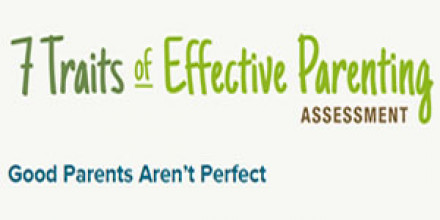
There's no parenting formula to follow, but there are ways you can grow every day. This assessment gives parents an honest look at their unique strengths, plus some areas that could use a little help.
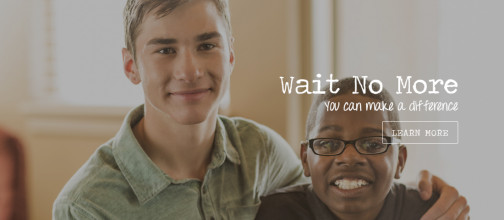
There are many ways to help kids in foster care . However you decide to make a difference, we can provide guidance and support as you walk down this incredibly rewarding path.
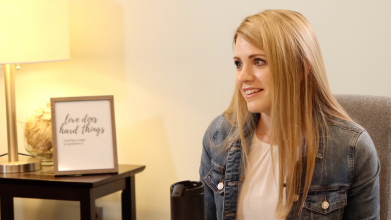
Crystal Paine is a strong advocate for children in foster care. In this personal interview, she shares the challenges and joys of fostering.
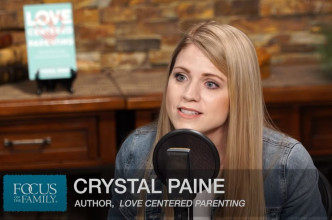
Visit our YouTube channel to watch a brief excerpt from our interview with Crystal Paine in which she describes how an unexpected gift allowed her a fresh start in parenting.
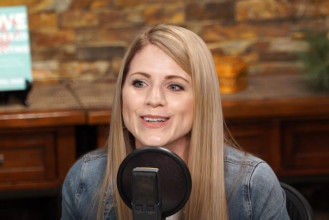
Visit our YouTube channel to watch a brief video with Crystal Paine in which she describes how foster care changed her perspective on parenting.

Based on her book No More Perfect Moms, Jill Savage encourages moms to find relief from performance anxiety by allowing themselves, and their loved ones, the freedom to make mistakes.

Here are some helpful guiding questions to consider when you’re thinking whether certain words you use with your kids are life-giving or potentially destructive.

The world may tell us that we need to live up to certain expectations of perfection. God's expectations look entirely different.

In this Adventures in Odyssey drama, a carelessly uttered word from Eugene creates havoc as it becomes the fashionable insult, resulting in a lesson about the power of words.

This discussion offers a preview of Volume #16 “Cultures in Conflict” from the That The World May Know video series, available below.

Debra Fileta will help couples better understand the four seasons of healthy relationships, what to expect during each one, and how to carefully navigate them for a stronger marriage. (Part 1 of 2)

Larnelle Harris shares stories about how God redeemed the dysfunctional past of his parents, the many African-American teachers who sacrificed their time and energy to give young men like himself a better future, and how his faithfulness to godly principles gave him greater opportunities and career success than anything else.

Amy Carroll shares how her perfectionism led to her being discontent in her marriage for over a decade, how she learned to find value in who Christ is, not in what she does, and practical ways everyone can accept the messiness of marriage and of life.

Psychologist Dr. Kelly Flanagan discusses the origins of shame, the search for self-worth in all the wrong places, and the importance of extending grace to ourselves. He also explains how parents can help their kids find their own sense of self-worth, belonging and purpose.